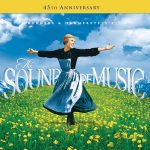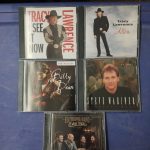Modern music marketing is a crucial aspect of promoting music in today’s online landscape. It encompasses various strategies and tools that help musicians and artists reach a wider audience and build a successful music career.
In this digital age, musicians can leverage social media platforms, streaming services, content creation, and online advertising to connect with fans, increase their visibility, and generate revenue. With the right marketing approach, artists can effectively showcase their talent, engage with their fanbase, and stay competitive in the ever-evolving music industry.
Combining creativity, innovation, and strategic planning, modern music marketing plays a vital role in helping artists navigate the digital landscape and make their mark in the industry.

Credit: blog.hubspot.com
Understanding The Changing Landscape Of The Music Industry
The Influence Of Digital Technology On Music Consumption
Digital technology has revolutionized the way we consume music, completely transforming the landscape of the music industry. With the rise of smartphones and the internet, music is now more accessible than ever before. Here are some key points to understand how digital technology has influenced music consumption:
- Instant access to music: Gone are the days when we had to visit music stores or wait for our favorite songs to play on the radio. Thanks to digital technology, we can now instantly access a vast library of music with just a few clicks.
- Streaming services: Streaming platforms like spotify, apple music, and amazon music have become the go-to choice for music lovers. These platforms offer unlimited access to millions of songs, allowing users to stream music anytime, anywhere.
- Personalized recommendations: One of the major benefits of digital technology is the ability to receive personalized music recommendations. Streaming platforms analyze user preferences and behavior to suggest new songs and artists that align with their taste.
- Music discovery: Discovering new music has become easier, thanks to digital technology. With curated playlists, algorithmic recommendations, and user-generated content, listeners can explore a wide range of genres and artists they may have never come across otherwise.
- Social sharing: Digital technology has also encouraged music sharing among friends and on social media platforms. We can now easily share our favorite songs or playlists with others, creating a sense of community and expanding our musical horizons.
The rise of streaming platforms and their impact on marketing strategies
The rise of streaming platforms has not only changed the way we consume music but has also revolutionized music marketing strategies. Here are some key points to understand the impact of streaming platforms on marketing:
- Targeted advertising: Streaming platforms collect valuable data on user preferences, allowing marketers to target specific demographics with personalized advertisements. This ensures that music promotions reach the right audience, increasing the chances of turning listeners into fans.
- Playlists as promotional tools: Curated playlists on streaming platforms have become powerful promotional tools. Getting a song featured on a popular playlist can expose an artist to a vast audience, helping them gain recognition and traction.
- Influencer collaborations: The rise of streaming platforms has given rise to influencer collaborations. Artists and brands can partner with popular influencers to promote their music or products, leveraging the influencer’s existing fan base to reach a wider audience.
- Data-driven insights: Streaming platforms provide artists and labels with detailed analytics and data that can inform their marketing strategies. They can track metrics like plays, skip rates, and audience demographics, gaining valuable insights into listener behavior and preferences.
- Live streaming concerts: With the advent of streaming platforms, artists can now live stream their concerts, reaching fans across the globe in real-time. This opens up new opportunities for intimate performances, virtual events, and interactive fan engagement.
Digital technology and streaming platforms have had a profound impact on music consumption and marketing strategies. Instant access to music, personalized recommendations, and social sharing have made music more accessible and connected than ever before. Furthermore, streaming platforms have provided new avenues for targeted advertising, playlist promotion, influencer collaborations, and data-driven insights, transforming the way music is marketed to audiences.
The music industry continues to evolve with the advancing digital landscape, offering both exciting opportunities and challenges for artists and marketers alike.
Leveraging Social Media Platforms For Music Marketing
Building An Engaged Fanbase On Instagram
Instagram has become one of the most popular social media platforms for music marketing. With over 1 billion active users, it offers a great opportunity to build and engage with your fanbase. Here are some key tactics to consider when building an engaged fanbase on instagram:
- Regularly post engaging content: Consistency is key on instagram. Make sure to post regularly and share content that resonates with your target audience. This could include behind-the-scenes footage, sneak peeks of upcoming releases, or even just sharing your thoughts and experiences as a musician.
- Use relevant hashtags: Hashtags are a powerful tool on instagram that can help you reach a wider audience. Research popular and relevant hashtags in the music industry and include them in your posts. This will make your content more discoverable to potential fans who are interested in similar genres or artists.
- Interact with your fans: Building a strong relationship with your fans is crucial for success on instagram. Take the time to respond to comments, reply to direct messages, and engage with your audience. This will make your fans feel valued and appreciated, and they’ll be more likely to support your music.
- Collaborate with influencers: Influencer marketing is a popular strategy on instagram, and it can be highly effective for music promotion. Identify influencers in your niche who have a significant following and collaborate with them on projects or features. This can help you gain exposure to a wider audience and establish credibility in the industry.
- Leverage instagram stories: Instagram stories are a great way to connect with your fans in a more informal and authentic way. Use stories to share behind-the-scenes moments, previews of new music, or even take your fans on a virtual tour. This will help you build a stronger connection with your audience and keep them engaged.
Tactics For Effective Promotion On Tiktok
Tiktok has quickly become a powerful platform for music promotion, with its short-form video format and viral trends. Here are some key tactics to consider when promoting your music on tiktok:
- Participate in tiktok challenges: Tiktok challenges are a popular feature that encourages users to create videos based on a specific theme or concept. Participating in relevant challenges can help your music reach a wider audience and potentially go viral. Keep an eye on popular challenges in the music category and create engaging videos that feature your music.
- Create original content: Tiktok thrives on creativity and originality. Instead of simply using your music in the background of a video, think outside the box and create unique content that showcases your personality and talent. This could include choreographed dances, comedy skits, or even educational content related to your music.
- Collaborate with tiktok influencers: Similar to instagram, collaborating with influencers on tiktok can help you gain exposure to a larger audience. Identify influencers who align with your music and reach out to them for potential collaborations. This could involve creating joint videos, featuring your music in their content, or even having them promote your music to their followers.
- Utilize tiktok’s music discovery features: Tiktok offers a variety of music discovery features that can help boost your music’s visibility. Make sure your music is available in tiktok’s library by distributing it through a digital music distribution service. This will allow users to easily find and use your music in their videos, increasing its exposure.
- Engage with the tiktok community: Building a presence on tiktok goes beyond simply posting videos. Take the time to engage with the tiktok community by liking, commenting, and sharing other users’ content. This will help you build relationships with other creators and increase your visibility within the platform.
Remember, both instagram and tiktok offer unique opportunities for music marketing. By building an engaged fanbase on instagram and leveraging tiktok’s promotional tactics, you can expand your reach and connect with a larger audience. So, start implementing these strategies and watch your music career thrive in the digital age.
Creating Compelling Content To Connect With Audiences
Crafting authentic artist stories:
- Authenticity is essential in connecting with audiences. It allows fans to relate to the artist on a deeper level and fosters a sense of trust.
- Craft artist stories that reflect their unique journey, values, and experiences. This helps to create an emotional connection with fans and build a loyal following.
- Use storytelling techniques such as character development, conflict, and resolution to engage and captivate the audience.
- Incorporate personal anecdotes, struggles, triumphs, and inspirations to humanize the artist and make their story relatable.
- Highlight the artist’s individuality, showcasing what sets them apart from others in the industry.
- Focus on the passion and dedication behind the music, providing insight into the creative process and the emotions involved.
The power of visual content in music marketing:
- Visual content is a powerful tool for capturing attention and making a lasting impression.
- Utilize high-quality images and artwork to create visually stunning promotional materials and album covers.
- Create engaging music videos that tell a story and visually enhance the experience of listening to the music.
- Leverage platforms like instagram and youtube to share behind-the-scenes footage, live performances, and exclusive content.
- Collaborate with talented photographers, videographers, and graphic designers to bring the artist’s visual identity to life.
- Invest in visually appealing merchandise that fans can proudly wear and showcase, serving as a walking advertisement for the artist.
- Incorporate visually striking social media graphics and posts to generate excitement and encourage sharing.
Crafting authentic artist stories and incorporating visually appealing content are vital in modern music marketing. By connecting with audiences on an emotional level through compelling storytelling and visually captivating materials, artists can create a lasting impression and build a dedicated fanbase.
Utilizing Influencer Marketing To Amplify Reach
With the advent of the digital age, marketing strategies in the music industry have evolved significantly. Traditional methods like radio airplay and physical album promotion have given way to modern techniques that leverage the power of the internet and social media.
One such strategy that has gained immense popularity is influencer marketing. By collaborating with influencers, musicians can amplify their reach and connect with a wider audience. In this section, we will explore the key aspects of utilizing influencer marketing to boost music marketing efforts.
Identifying And Collaborating With Influencers In The Music Industry
To effectively leverage influencer marketing, it is crucial to identify the right influencers to collaborate with in the music industry. Here are some key points to consider when selecting influencers:
- Research and analyze: Conduct thorough research to identify influencers who align with your music genre, target audience, and brand image.
- Engagement and reach: Look for influencers who have a significant follower base with high engagement rates on their content.
- Authenticity and credibility: Consider partnering with influencers who have genuine connections with their followers and a strong reputation in the music industry.
- Previous collaborations: Assess influencers’ past collaborations with musicians to determine if they have successfully promoted music previously.
- Personal connections: Explore opportunities to collaborate with influencers who have personal interests or connections with the music genre or related artists.
Effective Strategies For Partnering With Social Media Influencers
Once you have identified potential influencers, it is time to develop effective strategies for partnering with them. Here are some key points to consider when working with social media influencers:
- Clear objectives: Clearly define your objectives and expectations for the influencer campaign, whether it be increasing brand awareness, promoting a new song, or driving sales.
- Authentic content creation: Encourage influencers to create genuine and authentic content that resonates with their followers. Allow them creative freedom to express their opinions and showcase your music in a unique way.
- Influencer takeover: Consider allowing influencers to temporarily take over your social media accounts, providing their followers with a behind-the-scenes glimpse of your music and your artistic process.
- Giveaways and exclusive content: Collaborate with influencers to offer exclusive content or host giveaways that can incentivize their followers to engage with your music.
- Sponsored posts and endorsements: Engage in sponsored posts or endorsements to amplify your reach and credibility within the influencer’s audience.
By identifying and collaborating with influencers in the music industry, and implementing effective strategies for working with them, you can leverage their reach, credibility, and creativity to amplify your music marketing efforts. Influencer marketing has revolutionized the way musicians connect with audiences in the digital age, providing unprecedented opportunities for exposure and growth.
So don’t miss out on the power of influencer marketing – take the leap and watch your music soar to new heights!
Harnessing The Power Of Data For Targeted Marketing
Data-Driven Insights For Music Release Strategies
In today’s digital age, harnessing the power of data is crucial for successful music marketing. By leveraging data-driven insights, artists, labels, and managers can make informed decisions about their release strategies. Here’s how:
- Analyzing past performance: By analyzing data from previous releases, artists can gain valuable insights into what worked well and what didn’t. This allows them to refine their marketing efforts and focus on strategies that have proven successful in the past.
- Understanding target audience: Data provides a wealth of information about an artist’s audience demographics, preferences, and behavior. By identifying key traits and trends, artists can tailor their marketing messages and campaigns to resonate with their target audience.
- Utilizing streaming analytics: Streaming platforms like spotify and apple music offer robust analytics tools that provide detailed insights into listeners’ behavior. Artists can use this data to understand which songs or playlists are performing well, giving them the opportunity to create targeted marketing campaigns to further boost their reach.
- Collaborating with influencers: Data-driven insights can help identify key influencers within a specific genre or niche. By partnering with influencers who have a strong following among the target audience, artists can tap into their fan base and increase their visibility.
Analyzing And Utilizing Audience Data For Better Marketing Results
Analyzing and utilizing audience data is crucial for achieving better marketing results in the music industry. Here are some key points to consider:
- Profiling your audience: Understanding your audience is key to effective marketing. Utilize data to create detailed profiles of your listeners, including demographics, interests, and preferences. This enables you to tailor your marketing efforts to appeal directly to your target audience.
- Personalization and segmentation: By leveraging audience data, you can segment your audience into different groups based on factors such as location, age, or music preferences. This allows you to deliver personalized, targeted messages that resonate with specific segments of your audience.
- Refining marketing strategies: Data insights provide valuable feedback on the effectiveness of your marketing strategies. Monitor key metrics such as engagement rates, click-through rates, and conversion rates to understand what works and what needs improvement. Use this information to refine your marketing strategies and allocate resources more effectively.
- Testing and optimization: Data allows you to test different marketing approaches and measure their impact. A/b testing, for example, enables you to compare the performance of two different versions of an ad or campaign. By analyzing the data, you can identify the most effective approach and optimize your marketing efforts accordingly.
- Staying agile and adaptable: The music industry is constantly evolving, and consumer preferences can change rapidly. By regularly analyzing audience data, you can stay on top of trends and adapt your marketing strategies to remain relevant and engaging.
Harnessing the power of data for targeted music marketing can be the difference between success and obscurity in today’s highly competitive industry. By analyzing past performance, understanding the audience, utilizing streaming analytics, collaborating with influencers, and analyzing audience data, artists can make data-driven decisions to enhance their marketing efforts and ultimately achieve better results.
Developing Successful Brand Partnerships
The Benefits Of Collaborating With Brands
Modern music marketing goes beyond just releasing great music. It involves building and nurturing relationships with brands to create successful brand partnerships. These collaborations can offer numerous benefits to musicians, both financially and in terms of exposure and credibility. Here are some key advantages of collaborating with brands:
- Increased reach and exposure: Partnering with brands allows musicians to tap into a brand’s existing audience, extending their reach to new demographics and potentially gaining exposure to thousands, or even millions, of potential fans.
- Financial opportunities: Brand partnerships can be financially rewarding for musicians, providing opportunities for sponsorships, endorsements, and even product placements. These collaborations can help generate revenue that can be invested back into the music career or used to fund future projects.
- Enhanced credibility: Associating with reputable brands can enhance a musician’s credibility and reputation. These partnerships can create a perception of success and professionalism within the industry, opening doors to new opportunities and partnerships.
- Access to resources and expertise: Working with brands often means gaining access to their resources and expertise. This can include professional marketing teams, industry knowledge, and support in areas such as tour promotions, event planning, and digital marketing campaigns.
- Creative collaboration: Partnering with brands allows musicians to explore unique creative opportunities. Working together on marketing campaigns, music videos, or live events can generate fresh ideas, unique content, and memorable experiences for fans.
Strategies For Building And Nurturing Brand Partnerships In The Music Industry
Building and nurturing brand partnerships require a strategic approach to ensure long-term success. Here are some effective strategies to consider:
- Identify alignment: The first step is to identify brands that align with the musician’s image, values, and target audience. Research brands that share similar goals and messaging to ensure a genuine and lasting partnership.
- Leverage mutual benefits: Collaborations should offer value to both the musician and the brand. Identify the unique benefits each party can bring to the table and find ways to leverage those strengths. This could include shared promotional campaigns, co-branded merchandise, or exclusive fan experiences.
- Establish relationships: Building a brand partnership starts with establishing relationships. Reach out to brands through networking events, industry conferences, or direct contact through social media platforms. Cultivate these relationships by engaging with brand content, sharing their messaging, and showcasing the potential for collaboration.
- Demonstrate value: Brands are often driven by roi (return on investment). Demonstrate the value a partnership can bring by showcasing past successes, data on audience demographics, social media engagement, and any other relevant metrics that highlight the potential impact on the brand’s marketing goals.
- Create customizable packages: Different brands have unique marketing objectives and budgets. By offering customizable partnership packages, musicians can cater to a brand’s specific needs and tailor collaborations to fit their budget, timeframe, and strategic goals.
- Deliver on commitments: Once a brand partnership is established, it is crucial to deliver on commitments. This means fulfilling agreed-upon marketing activities, meeting deadlines, and maintaining open communication with the brand throughout the collaboration.
- Measure effectiveness: After a brand partnership, it is essential to measure the effectiveness of the collaboration. Analyze data, track metrics, and gather feedback from both the brand and the audience to assess the impact of the partnership. Use these insights to refine future partnerships and maximize their success.
In the dynamic landscape of modern music marketing, developing successful brand partnerships can be a game-changer for musicians. By tapping into the benefits of collaborations and implementing effective strategies, musicians can elevate their careers, reach new audiences, and create powerful connections with brands.
Building A Strong Online Presence For Music Promotion
In today’s digital age, having a strong online presence is crucial for musicians to succeed in the music industry. With the majority of music discovery happening online, it’s essential for artists to optimize their websites and use effective strategies for search engine optimization (seo).
In this section, we will delve into optimizing artist websites for maximum impact and explore effective seo strategies in the music industry.
Optimizing Artist Websites For Maximum Impact
Creating a captivating website is the first step towards building a strong online presence as a musician. Here are some key points to consider when optimizing your artist website for maximum impact:
- Mobile-friendly design: Ensure that your website is responsive and compatible with various devices, as the majority of internet users access websites through mobile devices.
- User-friendly navigation: Make your website easy to navigate by organizing content logically and providing clear menus and links for visitors to explore.
- Engaging visuals: Incorporate visually appealing elements such as high-quality images, videos, and album artwork to capture visitors’ attention and convey your unique style.
- Compelling bio and story: Craft a compelling artist biography that tells your story and connects with your audience on a personal level. Use engaging language and highlight your achievements, influences, and aspirations.
- Concert and event information: Keep your website regularly updated with upcoming concert dates, tour information, and links to purchase tickets. This helps fans stay connected and informed about your live performances.
- Music samples and playlists: Showcase your music through audio samples and curated playlists to give visitors a taste of your sound and keep them engaged on your website.
- Merchandise and store: Create a dedicated page to sell merchandise and physical copies of your music. Offer a seamless purchasing experience with secure payment options and attractive visuals.
- Social media integration: Integrate your social media profiles, such as instagram, twitter, and facebook, to encourage visitors to follow and engage with you on various platforms.
Effective Strategies For Search Engine Optimization (Seo) In The Music Industry
Implementing effective seo strategies will help your artist website rank higher in search engine results and drive organic traffic to your platform. Here are some key points to consider:
- Keyword research: Conduct thorough keyword research to identify relevant terms and phrases that your target audience uses to search for music. Incorporate these keywords naturally into your website content, including page titles, headings, and meta descriptions.
- Quality content creation: Regularly publish original and engaging content on your website, such as blog posts, news updates, and behind-the-scenes stories. This not only provides value to your audience but also attracts search engine crawlers.
- Link building: Build a strong network of backlinks from reputable and relevant websites in the music industry. Collaborate with other musicians, bloggers, and influencers to create mutually beneficial partnerships that can increase your website’s visibility.
- Optimized metadata: Optimize your website’s metadata, including title tags and meta descriptions, to accurately describe your content and entice users to click on your website in search results.
- Local seo: If you perform locally, optimize your website for local search by including location-specific keywords and creating local business profiles on platforms like google my business.
- Website speed and performance: Ensure that your website loads quickly and provides a smooth user experience. Slow-loading websites can result in high bounce rates and lower search engine rankings.
- Mobile optimization: As an increasing number of users access the internet through mobile devices, optimize your website for mobile devices to provide a seamless browsing experience.
- Social signals: Create and maintain an active presence on social media platforms to boost social signals and increase engagement. This can indirectly impact your website’s search engine rankings.
By following these optimization techniques and implementing effective seo strategies, you can enhance your online presence as a musician and increase your chances of reaching a wider audience. Remember, building a strong online presence is an ongoing process, so continue to evaluate and improve your website and seo strategies over time.
Engaging With Fans And Building A Dedicated Community
Building A Strong Social Media Presence
In today’s digital age, having a strong social media presence is essential for any modern music marketing strategy. Social media platforms provide musicians with a direct line of communication to their fans and offer countless opportunities for engaging with their audience.
Here are some key points to keep in mind when building a strong social media presence:
- Consistency is key: Regularly posting content on your social media platforms helps to keep fans engaged and shows that you are actively involved in your music career. Aim to post at least a few times a week, if not daily, to keep your audience interested.
- Quality over quantity: While consistency is important, it’s equally essential to focus on the quality of your content. Take the time to create engaging and visually appealing posts that resonate with your fans. Invest in high-quality images, videos, and graphics to make your social media profiles stand out.
- Know your audience: Understanding your target audience is crucial when it comes to social media marketing. Research your fans’ demographics, interests, and online behaviors to tailor your content to their preferences. By speaking directly to your audience, you can create a sense of community and foster a loyal following.
Encouraging Fan Interaction And Engagement
Engaging with your fans is the key to building a dedicated community around your music. When fans feel connected to you and your music, they are more likely to become loyal supporters and advocates. Here’s how you can encourage fan interaction and engagement:
- Respond to comments and messages: Take the time to reply to comments and direct messages from your fans. This shows that you value their input and appreciate their support. Engaging in conversations with your followers can help build a personal connection and deepen their loyalty.
- Conduct q&a sessions: Hosting live or pre-recorded q&a sessions on social media platforms allows fans to ask you questions directly. This not only gives your fans the opportunity to learn more about you and your music but also provides insights into their interests and preferences.
- Run contests and giveaways: Contests and giveaways are a great way to incentivize fan engagement. Whether it’s offering exclusive merchandise, concert tickets, or even shoutouts, these incentives can encourage fans to actively engage with your social media posts.
- Share user-generated content: Encouraging fans to create and share their own content related to your music not only boosts engagement but also strengthens the sense of community. Acknowledge and showcase fan-created content by reposting it on your social media platforms, giving credit to the creators.
By building a strong social media presence and actively engaging with your fans, you can create a dedicated community that supports and champions your music. Embrace the power of social media and harness its potential to build meaningful connections with your audience.
Staying Ahead With Innovative Marketing Techniques
Exploring Emerging Technologies In Music Marketing
In today’s fast-paced and ever-changing music industry, staying ahead with innovative marketing techniques is crucial for success. With the constant evolution of technology, new opportunities arise for artists, managers, and record labels to connect with their audience in more impactful ways.
Let’s explore some of the emerging technologies that are shaping the future of music marketing:
- Augmented reality (ar): Ar technology has taken the music industry by storm, offering fans interactive experiences and immersive performances. Artists can now use ar to engage fans through virtual concerts, 3d animations, and unique storytelling experiences.
- Virtual reality (vr): Vr technology opens up a world of possibilities for music marketing. Artists can transport their audience to virtual stages and venues, providing an unparalleled sense of presence. Vr concerts and experiences offer fans a front-row seat to their favorite artist’s performance, regardless of their location.
- Voice assistants: Voice-controlled devices such as amazon echo, google home, and apple’s siri have become integral parts of our daily lives. As such, optimizing music marketing strategies for voice search and voice-assisted devices is crucial. Artists and labels should consider creating voice-activated apps, playlists, or even partnering with voice assistants to reach a wider audience.
- Artificial intelligence (ai): Ai technology has revolutionized the way music is created, discovered, and promoted. Machine learning algorithms help analyze vast amounts of data, providing valuable insights into listeners’ preferences. Artists and marketers can leverage ai to identify target audiences, personalize recommendations, and improve overall marketing strategies.
Strategies For Keeping Up With Industry Trends
As industry trends continue to evolve, it is crucial for music marketers to adapt their strategies to stay relevant. Here are some strategies to help you keep up with the ever-changing music industry:
- Stay active on social media: Social media platforms are powerful tools for connecting with fans and promoting music. Stay engaged by regularly posting updates, behind-the-scenes content, and interacting with your audience. Leverage different platforms based on where your fans are most active, such as instagram, tiktok, or twitter.
- Embrace influencer marketing: Collaborating with influencers can be a game-changer in reaching a wider audience. Identify influencers that align with your brand and target audience, and work together to create compelling content that showcases your music.
- Use data analytics: Data analysis plays a crucial role in understanding audience behavior and preferences. Utilize platforms like spotify for artists and youtube analytics to gain insights into your listeners’ demographics, listening habits, and engagement levels. This information will guide your decision-making process and help tailor your marketing efforts.
- Collaborate and cross-promote: Collaborating with other artists or brands can help expand your reach and fanbase. Consider partnering with like-minded musicians, brands, or even non-music related influencers to cross-promote each other’s work. This strategy can lead to increased exposure and new opportunities.
- Constantly innovate: The music industry is highly competitive, and standing out from the crowd requires continuous innovation. Keep an eye on emerging trends, technologies, and marketing strategies. Experiment with new tools, platforms, and formats to keep your audience engaged and excited.
By exploring emerging technologies and embracing innovative marketing techniques, music industry professionals can stay ahead of the curve and navigate the ever-changing landscape. Remember, adapting to industry trends and continuously evolving your strategies is key to success in modern music marketing.
Frequently Asked Questions For Modern Music Marketing
What Are The Modern Music Marketing Strategies?
Modern music marketing strategies include social media promotion, influencer collaborations, targeted advertising, live streaming concerts, and digital distribution. These methods help artists reach a wider audience, engage with fans directly, and increase their chances of success in the highly competitive music industry.
How Can Artists Use Social Media For Music Marketing?
Artists can use social media platforms like instagram, facebook, and twitter to connect with fans, share behind-the-scenes content, promote upcoming releases, and engage in conversations. They can also collaborate with influencers in the music industry to increase their reach and visibility.
What Is Digital Distribution In Music Marketing?
Digital distribution refers to the process of making music available on online platforms such as spotify, apple music, and youtube music. Artists can upload their songs, eps, or albums to these platforms and reach a global audience without the need for a traditional record label or physical distribution.
Conclusion
With the ever-changing landscape of the music industry, it is crucial for artists and marketers to embrace modern music marketing strategies. By understanding the power of social media and the importance of utilizing digital platforms, musicians can expand their reach and engage with a global audience.
Building a strong online presence, creating compelling content, and leveraging data analytics are essential components in today’s digital age. Additionally, musicians should prioritize collaboration and networking with industry professionals to maximize their marketing potential. By staying up-to-date with current trends and utilizing the right tools and techniques, artists can make a lasting impact and grow their fanbase.
As the music marketing landscape continues to evolve, it is crucial for artists to adapt and take advantage of the myriad of opportunities available. With the right approach, modern music marketing can help musicians thrive in today’s competitive industry.













